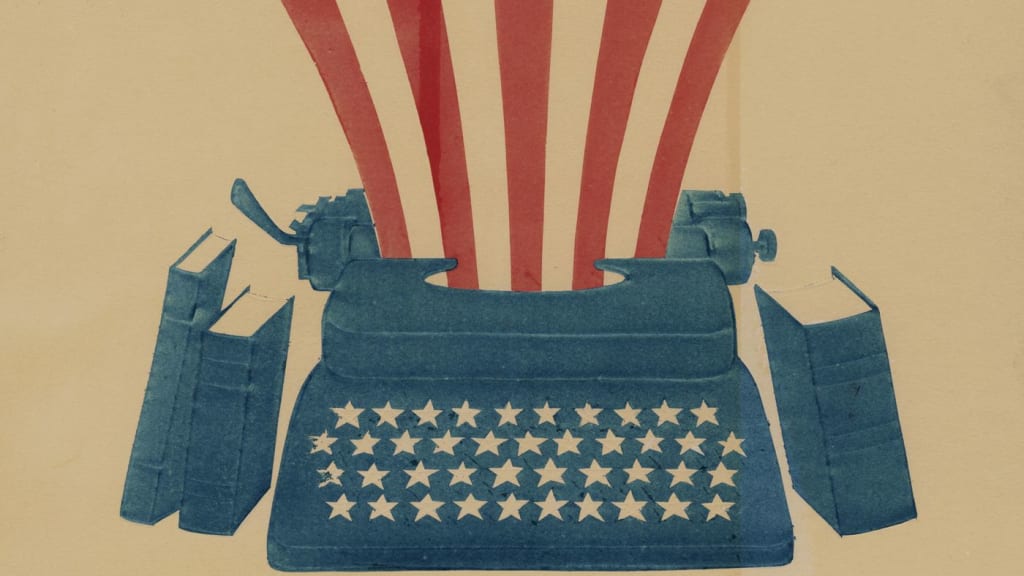What Makes 'Lost in Translation' a Great American Novel?
Americans are obsessed with "The Great American Novel," but do any of us really know what that means?

As Americans, we seem obsessed with discovering the next Great American Novel, which is simply a fancy way of asking for “any novel that is regarded as having successfully represented an important time in US history or one that tells a story that is typical of America.” (The Great American Novel) Eva Hoffman did not set out to write the Great American anything when she started her memoir Lost in Translation: A Life in a New Language. She is Polish Jewish, originally immigrated from Canada, and only spent her life in America during and after college. However, looking at the definitions of what constitutes a “Great American Novel,” Hoffman’s story parallels with every part. Technically, she wrote a memoir, which is not a novel, but her story is still “a story that is typical of America,” (The Great American Novel) which should give it standing room as a member of the literary canon of Great American works.
Book critics continuously argue “who might have written the Great American Novel of any given age, and writers have aspired to be the one chosen—a competitive mode that is, I suppose, as American as it gets.” (Strayed) As Cheryl Strayed for the New York Times points out, “America isn’t one story. It’s a layered and diverse array of identities, individual and collective, forged on contradictory realities that are imbued with and denied privilege and power.” (Strayed) Giving Hoffman the honor of being considered for the canon of Great American literature may seem strange since almost half of her memoir takes place outside of America, but the parts that do contain her American life, are important for understanding American literature’s canon of greats.
Within Lost in Translation, Hoffman herself gives a definition of what she believes to be American literature, and which her story meets all the standards of. Hoffman writes, “There is, in American literature, individualism and the frontier, and there is society versus nature, and self versus society—and there is, first and foremost in those days, alienation.” (Hoffman 182) Throughout the story of her life, Hoffman faces all these issues of Americanization head-on. She accepts that she is a unique individual of America, she faces the frontier in the form of America itself being so strange a land to her, she argues with herself over adapting to society or accepting her natural identity and wins, becoming a true American who is a little bit of everything. As for alienation, that’s the whole premise of Hoffman’s memoir. She is alienated from her world, her friends, her family, and sometimes from herself. She is American, so her work should be, too.
Hoffman wrote a piece of American literature according to herself, but that may seem a little biased, so how else can great American literature be defined? That is exactly what the Los Angeles Times asked their journalists in 2016. The study, conducted by Carolyn Kellogg, gave back many results of what people think should be considered a Great American Novel and why. Looking through those results, Hoffman’s Lost in Translation could easily fit into the wide canon of Great American works.
Writer John Scalzi picked To Kill a Mockingbird by Harper Lee for his Great American Novel because, “It needs to address some unique aspect of the American experience, usually either our faults or our aspirations as a nation, with recognizable moral force.” (Kellogg) Hoffman often showcases the faults in American society throughout Lost in Translation. According to Adam Kirsch of the New York Times, “The more deeply a novel lays bare the darkness in American society and the American soul, the more likely it is to become a classic. Moby-Dick… is centered on a vengeful megalomaniac; The Great Gatsby is about a social-climbing fraud…” (Kirsch) In Hoffman’s life, Americans do not accept her as herself, but instead expect her to Americanize herself to fit their standards; the only difference between her and her American friends is a slight accent. Towards the end of her memoir, she recounts on what she has learned from Americanizing herself by saying:
Ambition, achievement, and self-confidence are the pieties I’ve picked up from the environment, and if I don’t always work hard, I compensate by a sort of anxiety, an inner simulation of running hard… perhaps this is some internal correlative of the lure of the frontier, a psychological version, abstract and quite contentless, of moving on. (Hoffman 270-271)
This description is a perfect example of American society and our need to constantly be moving and doing better. Hoffman captures America from an outsider’s viewpoint and while her ideas may be “slightly askew,” (Hoffman 170) she understands that Americans, “thirst for books that will explain us to ourselves, that will dramatize and summarize what makes Americans the people they are.” (Kirsch) Hoffman gives readers America in a lens, that while we may not like it, is exactly what we need to hear.
Los Angeles Times critic Viet Thanh Nguyen chose The Woman Warrior by Maxine Hong Kingston as the Great American Novel because “One of the unspoken silences of the Great American Novel is the assumption that it can only be written by white men.” (Kellogg) Hoffman defies the unspoken rule as a Polish Jewish female immigrant. According to the 2010 United States census, there were 157 million females and roughly 152 million males in the country. (Women’s History Month) In 2018, “Nearly 45 million residents of the United States were foreign-born” (Bump) and about 6.7 million Jews were living in the States by 2013. (Guskin) In America, Hoffman’s views can relate to over half the population as females and more when specified as Jewish immigrants. Hoffman says:
A slight trace of an accent gives me away as somebody not born here… I know I’m a recognizable example of a species: A professional New York woman, and a member of a postwar international new class; somebody who feels at ease in the world, and is getting on with her career relatively well, and who is as fey and brave and capable and unsettled as many of the women here—one of a new breed, born of the jet age and the counterculture, and middle-class ambitions and American grit.(Hoffman 170).
Hoffman is American and should be given the ability to showcase her work alongside the “white men” who are more easily able to present their work in the Great American canon.
Critic Rebecca Carroll decided on Sula by Toni Morrison for her Great American Novel since, “Toni Morrison rewrites the very act of writing— making it seem like a new phenomenon, a secret blasted open and gifted to you.” (Kellogg) As a memoir, much of Lost in Translation talks about Hoffman’s love of reading and writing. She even admits that sometimes her inability to write or choose the right words can give her panic.
I’ve become obsessed with words… when I write, I want to use every word in the lexicon, to accumulate a thickness and weight of words so that they yield the specific gravity of things. I want to re-create, from the discrete particles of words, that wholeness of a childhood language that had no words. (Hoffman 216-217)
Hoffman expects perfection in her words, language, and writings, which should be an important aspect of any Great American work. Hoffman’s honesty about her obsession with perfecting her work and her language should give her a place in the Great American canon based on Carroll’s ideas.
However, according to Kellogg’s last entry, critic Marlon James believes that “there is no such thing as the Great American Novel. Nor the great Russian, Swedish, Irish, or great Papua New Guinean novel for that matter.” (Kellogg) Literary works are judged as “great” based on their merit, not their location. Hoffman’s memoir of her life, from Poland to Canada and then America, is great. She engages her readers, relates to them throughout her life’s story, and tells the truth about the world she lives in. This should give her standing in the canon of Great American literature.
Not only does Hoffman fit her own definition of American literature, but also all the parts pointed out by the New York Times and the Los Angeles Times before either newspaper had even written their checklist definition. Eva Hoffman’s Lost in Translation: A Life in a New Language is a great literary work and deserves placement in the Great American canon of literature, or Polish literature, or Jewish literature, or female literature, or maybe just in the canon of great literary works.
We all know about it, but what is it really? Can it be written by a woman? By a minority? By anyone?
About the Creator
Kristen Barenthaler
Curious adventurer. Crazed reader. Archery fanatic. Amateur author. Librarian.
Instagram: @kristenbarenthaler
Facebook: @kbarenthaler
GoodReads: https://www.goodreads.com/author/show/15101108.Kristen_Barenthaler






Comments
There are no comments for this story
Be the first to respond and start the conversation.